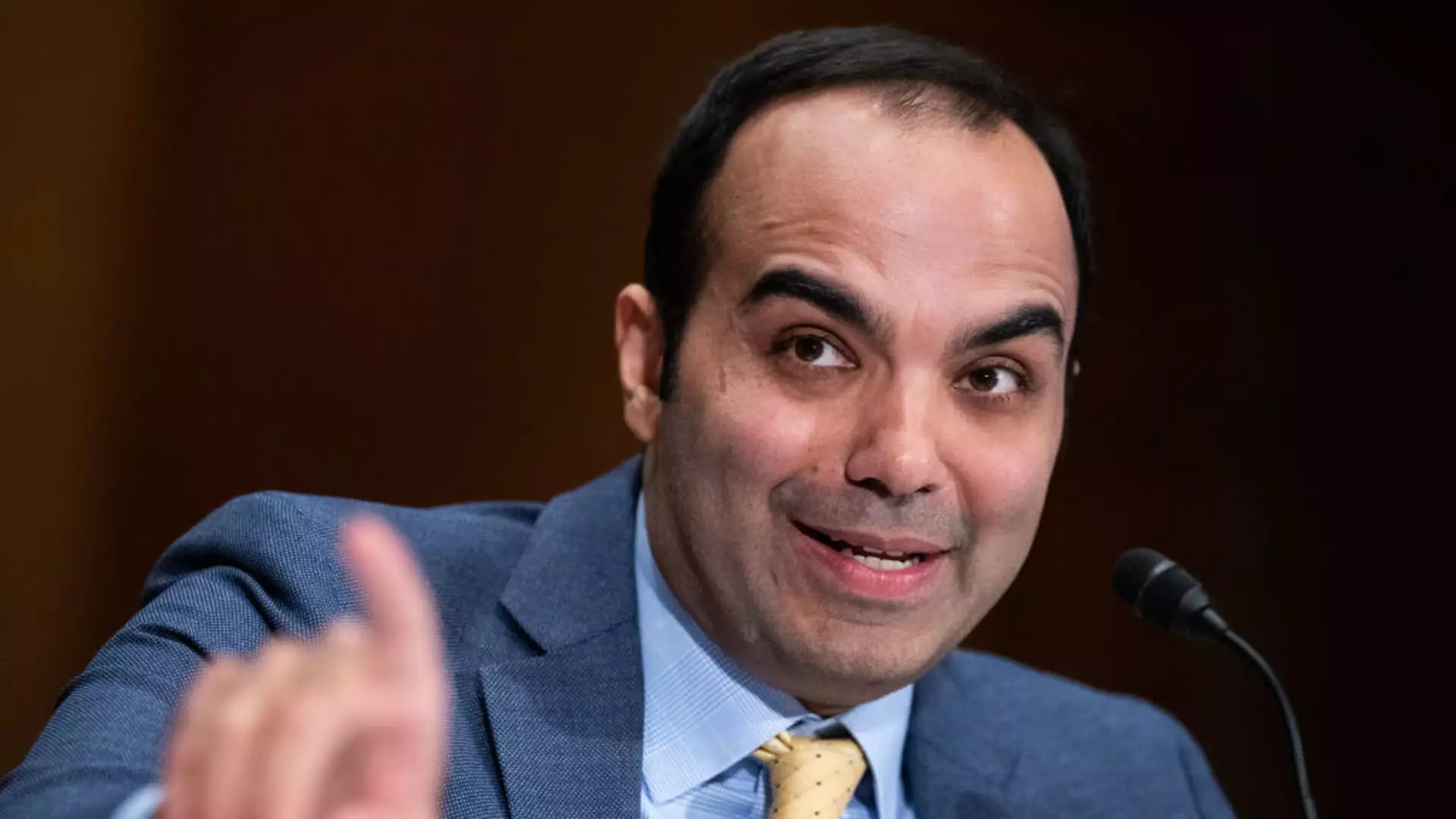On a pivotal Thursday, the Consumer Financial Protection Bureau (CFPB) unveiled a strategic rule aimed at enhancing its oversight of nonbank financial service firms. This decision underscores the Bureau’s commitment to adapt regulatory frameworks in response to the rapidly evolving financial landscape. With the rise of innovative payment methods, including mobile apps and digital wallets, the CFPB’s expanded authority seeks to ensure that all players in the financial services sphere adhere to consumer protection laws traditionally applicable to banks and credit unions.
The newly established rule specifically targets nonbank firms that process a staggering minimum of 50 million transactions annually, a threshold that effectively narrows the list of affected companies to just seven. Major industry players such as Apple, Google, and Amazon, along with prominent fintech entities like PayPal, Block, Venmo, and Zelle, will now face increased scrutiny. This rule not only reflects a significant shift in regulatory philosophy but also aligns the treatment of tech giants more closely with traditional banks. By embracing this approach, the CFPB aims to ensure that these pivotal financial service providers maintain stringent compliance with applicable laws.
The essential principle guiding this rule is the recognition that digital payments, once a convenience, have blossomed into a fundamental financial utility used by millions of Americans. The CFPB’s director, Rohit Chopra, aptly noted that the agency’s oversight must evolve in concert with this reality. The Bureau’s proactive examination approach will allow it to demand records and conduct interviews, which are crucial tools for upholding consumer rights and ensuring these nonbank entities are held accountable.
As consumer behavior shifts, the practical implications of payment apps going beyond mere transaction facilitators cannot be overlooked. With over 13 billion payments processed annually through these platforms, they are becoming essential for millions, especially among low- and middle-income users. The convenience of these technologies often leads users to rely on them as their primary financial tools. This transformation necessitates regulatory attention to protect consumers from potential pitfalls, such as fraud or arbitrary account closures, as pointed out by Chopra.
Additionally, the CFPB’s efforts resonate with the banking industry, which has long voiced concerns over tech firms’ encroachment into financial services without adequate oversight. In a rare display of solidarity, the Consumer Bankers Association praised the CFPB’s new measure. This acknowledgment highlights a shared understanding of the importance of consumer protection in an increasingly digital marketplace.
Interestingly, the original proposal was to subject firms processing at least 5 million transactions to similar examinations. However, the final rule escalated this bar to 50 million transactions, thus reducing the scope of affected companies. This change reflects a nuanced balancing act; while it expands oversight, it also seeks to maintain focus on the most significant players within the industry. Smaller entities processing fewer transactions are not included under this regulation, alleviating potential burdens on businesses that do not engage in high-volume operations.
It’s worth noting that specific payment applications, particularly those limited to a single retailer, like Starbucks’ rewards program, are exempt from this rule. The rationale behind such exclusions is likely geared towards fostering innovation while still protecting consumers.
The CFPB’s new rule is set to take effect within 30 days following its publication in the Federal Register. However, uncertainty looms regarding its longevity, particularly with the impending leadership changes within the federal government. The Biden administration’s regulatory stance appears aligned with the CFPB’s initiative, but potential shifts in leadership could impact these emerging frameworks.
The CFPB’s new rule marks a noteworthy step towards fortifying consumer protections in the face of transformative financial technologies. By ensuring that nonbank payment firms adhere to similar standards as traditional financial institutions, the CFPB is not just responding to consumer needs but is also setting the stage for a more equitable financial ecosystem. As consumers continue to embrace digital payments as integral to their financial lives, such regulatory shifts will be crucial in ensuring that the evolving landscape remains safe and fair for all.

